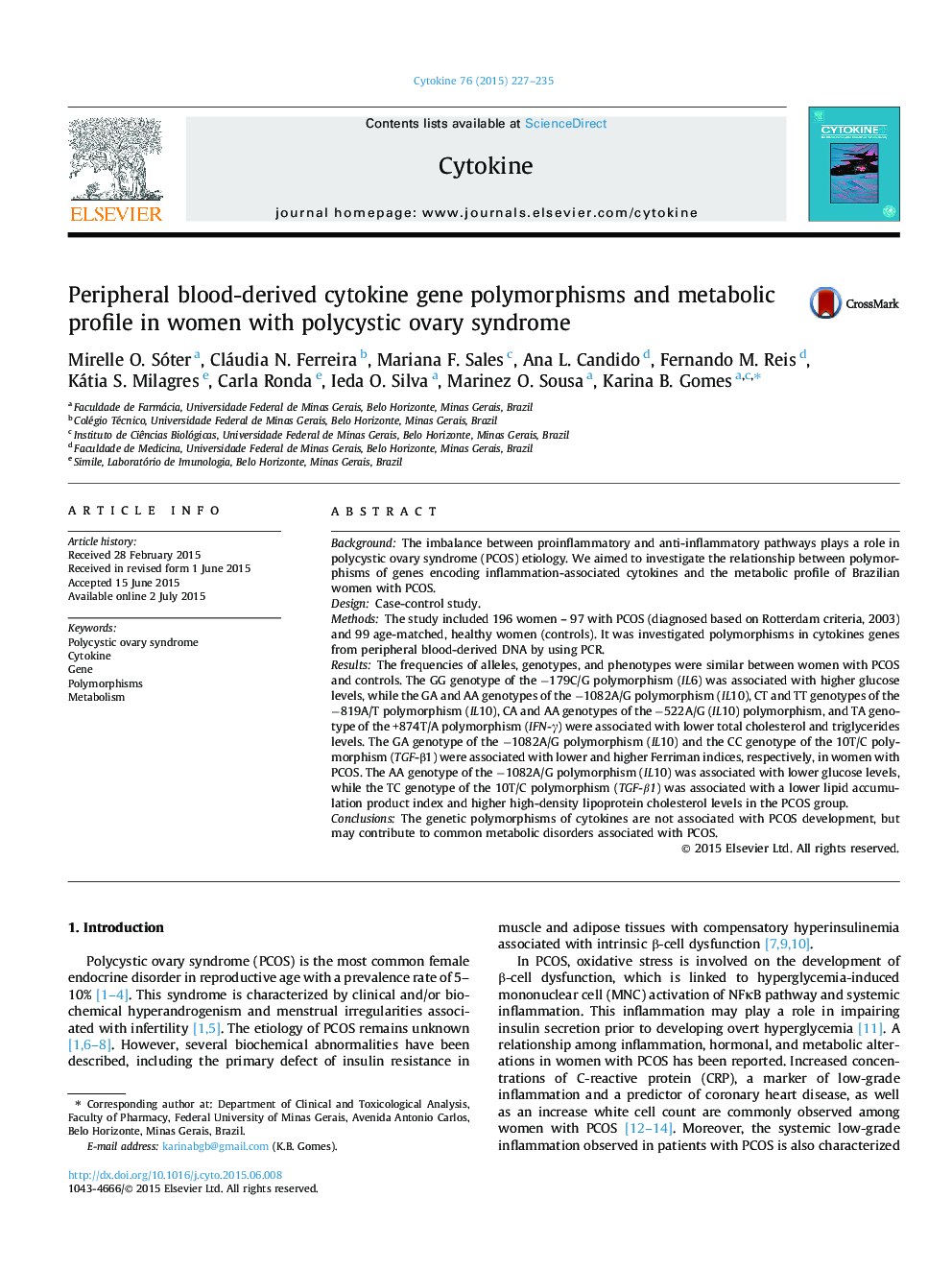| Article ID | Journal | Published Year | Pages | File Type |
|---|---|---|---|---|
| 2793962 | Cytokine | 2015 | 9 Pages |
•Genetic polymorphisms of cytokines are similar between PCOS and control groups.•IL6 and IL10 polymorphisms are associated with glucose levels in PCOS.•IL10/IFNγ polymorphisms are related to cholesterol/triglycerides levels in PCOS.•TGF-β1 polymorphisms are associated with Ferriman and LAP index in PCOS women.
BackgroundThe imbalance between proinflammatory and anti-inflammatory pathways plays a role in polycystic ovary syndrome (PCOS) etiology. We aimed to investigate the relationship between polymorphisms of genes encoding inflammation-associated cytokines and the metabolic profile of Brazilian women with PCOS.DesignCase-control study.MethodsThe study included 196 women – 97 with PCOS (diagnosed based on Rotterdam criteria, 2003) and 99 age-matched, healthy women (controls). It was investigated polymorphisms in cytokines genes from peripheral blood-derived DNA by using PCR.ResultsThe frequencies of alleles, genotypes, and phenotypes were similar between women with PCOS and controls. The GG genotype of the −179C/G polymorphism (IL6) was associated with higher glucose levels, while the GA and AA genotypes of the −1082A/G polymorphism (IL10), CT and TT genotypes of the −819A/T polymorphism (IL10), CA and AA genotypes of the −522A/G (IL10) polymorphism, and TA genotype of the +874T/A polymorphism (IFN-γ) were associated with lower total cholesterol and triglycerides levels. The GA genotype of the −1082A/G polymorphism (IL10) and the CC genotype of the 10T/C polymorphism (TGF-β1) were associated with lower and higher Ferriman indices, respectively, in women with PCOS. The AA genotype of the −1082A/G polymorphism (IL10) was associated with lower glucose levels, while the TC genotype of the 10T/C polymorphism (TGF-β1) was associated with a lower lipid accumulation product index and higher high-density lipoprotein cholesterol levels in the PCOS group.ConclusionsThe genetic polymorphisms of cytokines are not associated with PCOS development, but may contribute to common metabolic disorders associated with PCOS.
